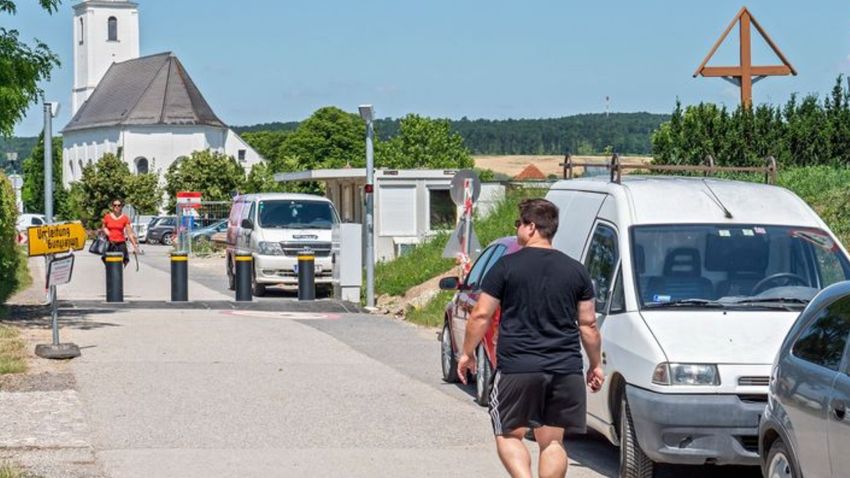Starting Monday, you can only drive through the small Hungarian-Austrian border between Ágfalva in Hungary and Somfalva (Schattendorf) in Austria with a cash-redeemable permit.
The permit required for crossing has been available since Wednesday at the Somfalv municipality for 160 euros, of which 140 euros can be purchased in the form of vouchers in local shops. If the application is judged positively, motorists will receive a pass, the sticker confirming this must be placed on the windshield. The lowering column system installed at the border automatically recognizes the valid permit and allows the car to cross the border and the pedestrian street.
The form can also be obtained from the mayor's office in Ágfalv. If someone has a problem filling it out, they will help. Personal documents and documents supporting eligibility must also be attached to the application, and it must also be indicated that the applicant wishes to cross the border for personal reasons or "economic interest", for example for work. Applications are judged by a panel of experts.
Thomas Hoffmann, the mayor of Somfalva, justified the decision by saying that the traffic passing through the settlement must be reduced, so a pedestrian street was created right at the border.
Ágfalva mayor Zsuzsanna Pék does not consider the restriction to be a good solution. Rather, he would advocate the opening of as many cross-border roads as possible, on which passing traffic would be distributed. The Hungarian government is open to this solution, but the Austrian side, unfortunately, is not.
According to constitutional lawyer Zoltán Lomnici Jr., with the restriction of traffic at the Hungarian-Austrian border crossings, the border has basically been closed, and it is no longer a matter of control or local traffic regulation, but a wide range of people are prohibited from entering Austria.
Regular users of the border crossing held a demonstration on Tuesday when the measure was announced. Tempers have not subsided in Ágfalva since then.
"We consider it completely incompatible with the principles of the European Union and the free passage of borders that the municipality of a settlement prevents border crossing for any reason. The content of the form to be filled in and the assessment method are also problematic. What do they have to do with who we go to and on what basis do they decide who they let in? We won't leave it at that! We live with a complaint, and if necessary, we go to the competent office of the European Union or to the court," Gyula Horváth, who previously worked for years in the neighboring country, told Kisalföld.
Several people consider the introduction of the barrier to be discriminatory. They added: even though they submitted the application, no one in the office could tell them how long the assessment would take. In addition, the sticker to be affixed to the car is sent by post, which can take days.













